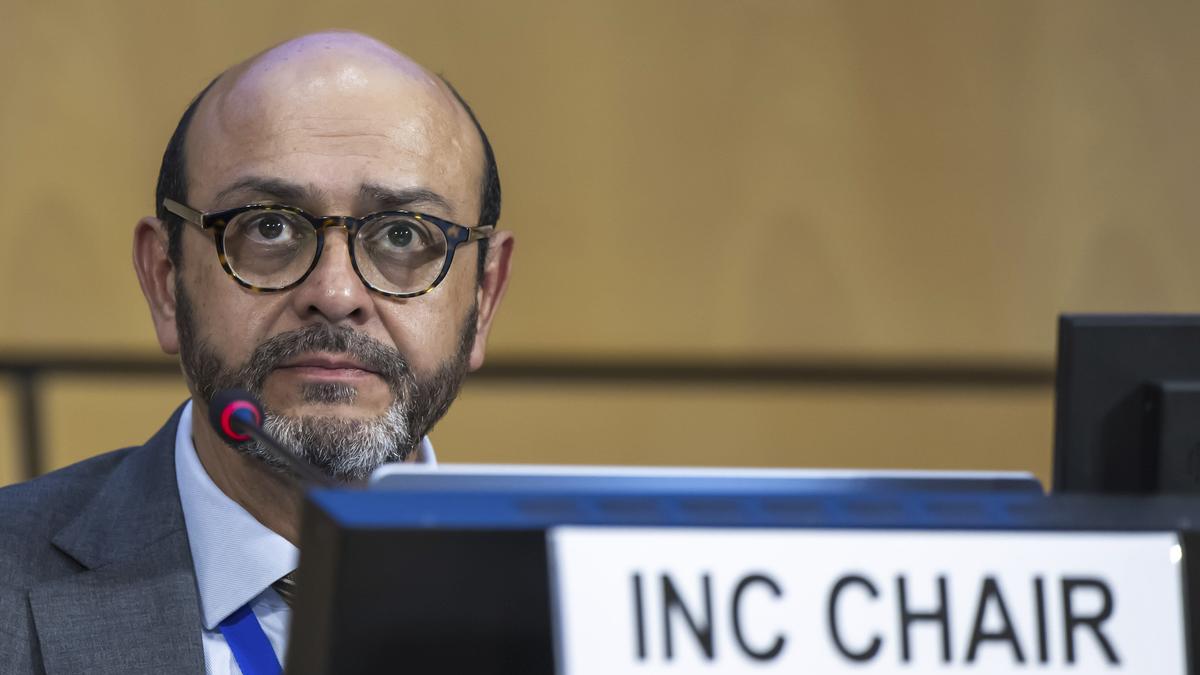Science
UN Plastic Pollution Treaty Talks Conclude Without Agreement

Negotiations aimed at establishing a global treaty to combat plastic pollution concluded on August 15, 2025, without reaching an agreement. Delegates from 185 countries gathered in Geneva, Switzerland, for the discussions, which began on August 5. The talks aimed to bridge the divide between nations advocating for stringent measures on plastic production and those focused primarily on waste management.
Despite extending negotiations past the initial deadline, countries could not find a common ground. The session, which included behind-closed-doors discussions, ultimately ended in an impasse. Representatives convened in the main assembly hall of the UN Palais des Nations to reflect on the lack of progress and contemplate future steps.
Norway’s lead negotiator expressed disappointment, stating, “We will not have a treaty to end plastic pollution here in Geneva.” The sentiment was echoed by Cuba, which emphasized the urgent need for such a treaty for current and future generations, noting, “We have missed a historic opportunity, but we have to keep going and act urgently.”
Many delegates voiced frustration over the repeated failures to achieve meaningful progress. Palau, representing 39 small island developing states (SIDS), lamented the disproportionate impact of plastic pollution on these nations, calling it “unjust” that they bear the burden of a crisis they contribute minimally to.
A coalition known as the High Ambition Coalition, which includes the European Union, the United Kingdom, Canada, and several African and Latin American countries, pressed for commitments to reduce plastic production and phase out toxic chemicals used in plastics. Conversely, the Like-Minded Group, comprised mainly of oil-producing nations such as Saudi Arabia, Kuwait, Russia, Iran, and Malaysia, argued for a more limited focus on waste management.
Kuwait’s representatives asserted, “Our views were not reflected… without an agreed scope, this process cannot remain on the right track and risks sliding down a slippery slope.” This divergence in priorities highlights the complexities of global negotiations surrounding environmental issues.
The urgency of the situation is underscored by the staggering statistics surrounding plastic production. Over 400 million tonnes of plastic are generated globally each year, with nearly half produced for single-use items. Alarmingly, while approximately 15% of plastic waste is collected for recycling, only about 9% is actually recycled. A significant portion, 46 percent, ends up in landfills, while 17 percent is incinerated, and 22 percent is mismanaged, contributing to litter and environmental degradation.
As the discussions concluded without consensus, delegates face the challenge of addressing the pressing issue of plastic pollution while reconciling differing national interests. The failure to reach an agreement in Geneva highlights the ongoing struggle to unite countries in the fight against environmental crises, a challenge that will require renewed commitment and innovative solutions moving forward.
-

 World5 months ago
World5 months agoSBI Announces QIP Floor Price at ₹811.05 Per Share
-

 Lifestyle5 months ago
Lifestyle5 months agoCept Unveils ₹3.1 Crore Urban Mobility Plan for Sustainable Growth
-

 Science4 months ago
Science4 months agoNew Blood Group Discovered in South Indian Woman at Rotary Centre
-

 World5 months ago
World5 months agoTorrential Rains Cause Flash Flooding in New York and New Jersey
-

 Top Stories5 months ago
Top Stories5 months agoKonkani Cultural Organisation to Host Pearl Jubilee in Abu Dhabi
-

 Sports4 months ago
Sports4 months agoBroad Advocates for Bowling Change Ahead of Final Test Against India
-

 Science5 months ago
Science5 months agoNothing Headphone 1 Review: A Bold Contender in Audio Design
-

 Top Stories5 months ago
Top Stories5 months agoAir India Crash Investigation Highlights Boeing Fuel Switch Concerns
-

 Business5 months ago
Business5 months agoIndian Stock Market Rebounds: Sensex and Nifty Rise After Four-Day Decline
-

 Sports4 months ago
Sports4 months agoCristian Totti Retires at 19: Pressure of Fame Takes Toll
-

 Politics5 months ago
Politics5 months agoAbandoned Doberman Finds New Home After Journey to Prague
-

 Top Stories5 months ago
Top Stories5 months agoPatna Bank Manager Abhishek Varun Found Dead in Well









